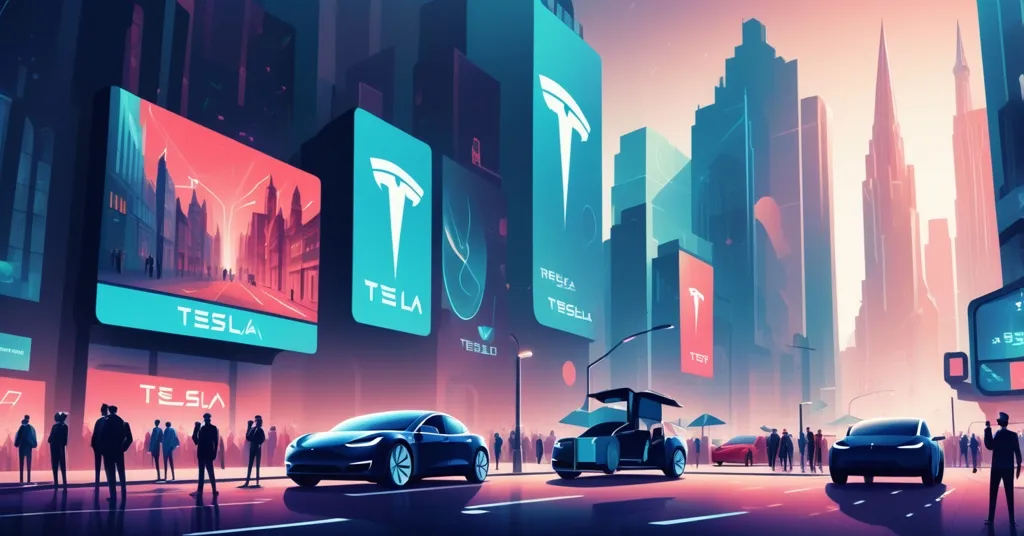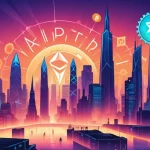Robinhood Launches Tokenized US Stocks in Europe: Blockchain Breakthrough or TradFi Mirage?

Robinhood’s Tokenized Stock Gambit Hits Europe: Blockchain Innovation or TradFi Trap?
Robinhood has unleashed a bold experiment, rolling out over 200 tokenized US stocks and ETFs to investors across 30 EU and EEA countries as of June 30, 2025. This move fuses traditional finance with blockchain technology, promising seamless access to American markets, but it’s not without serious hurdles and lingering doubts.
- Tokenized Access: European investors can now trade US equities like Nasdaq and S&P 500 stocks with zero commissions via the Robinhood app.
- Blockchain Edge: Tokens run on Arbitrum, a Layer 2 network, with plans for a custom Robinhood blockchain tailored for real-world assets (RWAs).
- Caution Ahead: Regulatory minefields, technical risks, and shady side-hustles like Best Wallet Token ($BEST) cloud the picture.
Robinhood’s Big Leap: US Stocks Go On-Chain
Picture snapping up a slice of Apple or Tesla from a café in Paris at midnight, no broker fees, no wait times. That’s the allure Robinhood is banking on with its latest offering, detailed in their recent announcement on tokenized stocks in Europe. European users across the EU and EEA now have access to over 200 tokenized US stocks and ETFs directly through the Robinhood app, complete with dividend support and 24/5 trading. This isn’t just a new feature; it’s a stab at dismantling the clunky, gatekeeper-laden world of cross-border investing. Robinhood, the same outfit that flipped stock trading on its head with commission-free trades during the 2021 GameStop frenzy, is now doubling down on disruption by bringing blockchain into the mix.
At the heart of this is tokenization, a process where traditional assets—think stocks, real estate, or even art—are turned into digital tokens on a blockchain. These tokens represent ownership, often in tiny fractions, making it possible for someone with just a few euros to invest in high-ticket items. For newbies, imagine a stock as a pizza: tokenization lets you buy a single slice instead of the whole pie, and blockchain ensures the transaction is fast, transparent, and (ideally) secure. Robinhood’s tokens are initially hosted on Arbitrum, a Layer 2 solution for Ethereum that processes transactions off the main network to cut costs and speed things up. But they’re not stopping there—plans are in motion to shift to a custom Layer 2 blockchain built specifically for tokenizing real-world assets (RWAs), hinting at even bigger ambitions to redefine how we own and trade value, as covered in this report on crypto adoption.
Robinhood’s leadership is all-in on this vision. Chairman and CEO Vlad Tenev has stated:
“Our latest offerings lay the groundwork for crypto to become the backbone of the global financial system.”
Meanwhile, Johann Kerbrat, GM and SVP of Robinhood Crypto, emphasized accessibility:
“Crypto was built by engineers for engineers, and has not been accessible to most people. We’re onboarding the world to crypto by making it as easy to use as possible—with the goal of bringing powerful tools into one intuitive platform.”
Their point is clear: blockchain isn’t just for tech geeks anymore. By wrapping US equities in this tech, Robinhood aims to drag millions into the on-chain era, potentially paving the way for broader adoption of decentralized systems.
Blockchain Under the Hood: Speed, Transparency, and Hidden Snags
Let’s get into the nuts and bolts. Using Arbitrum as the foundation for these tokens means transactions are faster and cheaper than on Ethereum’s main network, where fees can spike to absurd levels during peak traffic. Arbitrum handles the heavy lifting off-chain, only settling final results on Ethereum for security—a bit like drafting an email offline before sending it. Data backs this up: Arbitrum’s average transaction cost often hovers below $0.50, compared to Ethereum mainnet fees that can hit $10 or more during congestion. Robinhood’s eventual custom Layer 2 could push efficiency further, especially for RWAs, which demand high throughput for fractional trades across borders, as explored in this technical analysis of Robinhood’s Arbitrum integration.
Transparency is another win. Blockchain records are public (or at least pseudonymous), letting anyone audit trades in real-time, unlike the opaque ledgers of traditional brokers where delays and hidden fees are the norm. But don’t start the victory dance just yet—there are cracks in this shiny armor. Smart contracts, the code that powers tokenized assets, aren’t foolproof. Look at past disasters like the 2021 Poly Network hack, where $600 million was siphoned due to a coding flaw, or the 2022 Wormhole exploit losing $320 million. If Robinhood’s system (or Arbitrum’s) has a glitch, trust could evaporate overnight. Then there’s custody: how are these tokenized assets secured compared to a traditional brokerage? Robinhood hasn’t detailed this publicly, leaving questions about whether your digital Tesla slice is as safe as they claim. For a deeper look into such concerns, check this discussion on risks of tokenized investments.
Risks on the Horizon: Regulation and Centralization Concerns
Now, let’s talk about the elephant stomping through the room: regulation. Tokenized stocks sit in a gray zone between securities and crypto, and Europe’s no stranger to heavy-handed oversight. The EU’s Markets in Crypto-Assets (MiCA) framework, rolling out fully by late 2024, could classify these tokens as regulated instruments, forcing Robinhood to jump through hoops across 30 jurisdictions. Robinhood is regulated by the Bank of Lithuania and is pushing for a unified US framework for RWAs, so they’re not clueless, but navigating this patchwork of laws is like herding cats with a blindfold on. A single misstep—or a cranky regulator—could kneecap this experiment before it gains traction, as noted in this update on RWA trends and EU regulations.
Here’s a devil’s advocate take: is Robinhood truly decentralizing finance, or just slapping a blockchain label on centralized control? Their custom Layer 2 sounds innovative, but if they hold the keys—deciding who trades what, when, and how—it’s just TradFi in a shiny new wrapper. This clashes with the Bitcoin ethos of censorship resistance, where no single entity calls the shots. Unlike Bitcoin’s trustless network, Robinhood’s system could be a walled garden masquerading as freedom. They’ve got history here—recall the 2021 GameStop trading halt that enraged users. If their blockchain prioritizes profit over openness, we’re back to square one, just with fancier tech. For background on the company’s broader operations, refer to this overview of Robinhood Markets.
Bitcoin’s Indirect Win: A Rising Tide for Decentralization?
So, where does Bitcoin fit into this tokenized stock frenzy? Directly, nowhere—Robinhood’s focus is equities, not the OG cryptocurrency. But peel back the layers, and there’s a ripple effect worth watching. Normalizing blockchain for mainstream assets like Nasdaq stocks could lower the mental barrier for normies to explore decentralized tech. If your average Joe in Amsterdam starts trading tokenized Tesla shares, he might wonder, “What’s this Bitcoin thing everyone’s been yapping about?” That curiosity could drive fresh blood into BTC’s ecosystem, especially as the most battle-tested, secure blockchain out there, a topic debated in this Reddit thread on tokenized stocks in Europe.
Then there’s infrastructure. The push for efficient Layer 2s to handle tokenized assets might spill over to Bitcoin’s own scaling solutions like the Lightning Network, which handles microtransactions off-chain with similar goals of speed and low cost. Imagine tokenized asset volume driving demand for robust cross-chain bridges or settlement layers—Bitcoin, with its unmatched security, could emerge as the ultimate backstop for value storage in this hybrid future. It’s not a direct win, but as we champion effective accelerationism (e/acc), this messy, tech-forward disruption aligns with our fight to upend outdated financial systems. For Bitcoin maxis, keep an eye on how TradFi’s blockchain flirtation might bolster our long game.
Scam Alert: The Dark Side of Crypto Hype
Speaking of disruption, not every project riding the blockchain wave deserves applause. Take Best Wallet Token ($BEST), tied to the Best Wallet ecosystem and hyped in some corners alongside Robinhood’s news. Promoters tout it as a MetaMask rival with perks like 20% APY staking rewards, reduced fees, early presale access, and even iGaming bonuses. They claim a current price of $0.025265, a $13.6 million presale haul, and absurd price predictions—$0.072 by 2025 (185% up) or $0.62 by 2026 (a delusional 2,860% return if staked). Sounds like a jackpot, right? Wrong. Dig into community feedback on platforms like Reddit, and it’s a horror show—users report lost funds, forced logouts, unclaimable presale tokens, and outright scam accusations, as highlighted in this thread on $BEST scam concerns. We couldn’t verify a single rosy claim about $BEST through credible sources. This reeks of the shilling we loathe—no bullshit, if you’re eyeing this, run the other way until hard proof emerges. The crypto space doesn’t need more snake oil.
Contrast this with legit RWA efforts like MakerDAO’s tokenized US Treasury exposure, which offers transparency and audited reserves. Robinhood’s play, while not perfect, at least comes from a regulated entity with skin in the game. The lesson? Blockchain’s potential doesn’t excuse blind faith. Scammers thrive on hype, and it’s our job to call them out while pushing for real innovation.
Key Takeaways and Burning Questions
- What does Robinhood’s tokenized stock launch offer European investors?
It grants access to over 200 US stocks and ETFs, including Nasdaq and S&P 500 giants, with zero commissions and 24/5 trading via blockchain tech for speed and ease. - How does blockchain enhance this over traditional stock trading?
Using Arbitrum (and later a custom Layer 2), it cuts costs and boosts transparency with near-instant, auditable trades—though smart contract bugs and hacks remain risks. - What are the major risks of blending stocks with blockchain?
Regulatory uncertainty under frameworks like EU’s MiCA could stifle it, while technical flaws in smart contracts or centralized control by Robinhood might undermine trust. - Could this indirectly benefit Bitcoin and decentralized tech?
Yes, by normalizing blockchain for mainstream finance, it may spark interest in Bitcoin as the original trustless network and drive scaling solutions that enhance BTC’s ecosystem. - Why be wary of promotions like Best Wallet Token ($BEST)?
Community reports of scams, lost funds, and unverifiable claims scream red flags—steer clear of such hype until proven legit, as the crypto space is crawling with grifters.
Robinhood’s gamble on tokenized stocks is a fascinating jab at merging TradFi with DeFi, resonating with our push for decentralization, privacy, and shaking the financial status quo. Yet, it’s no slam dunk—red tape, tech glitches, and the ever-present stench of crypto scams loom large. As we root for blockchain to redefine money, let’s keep our eyes wide open. Is this the dawn of financial sovereignty, or just Wall Street’s latest shiny toy? Time will tell.



